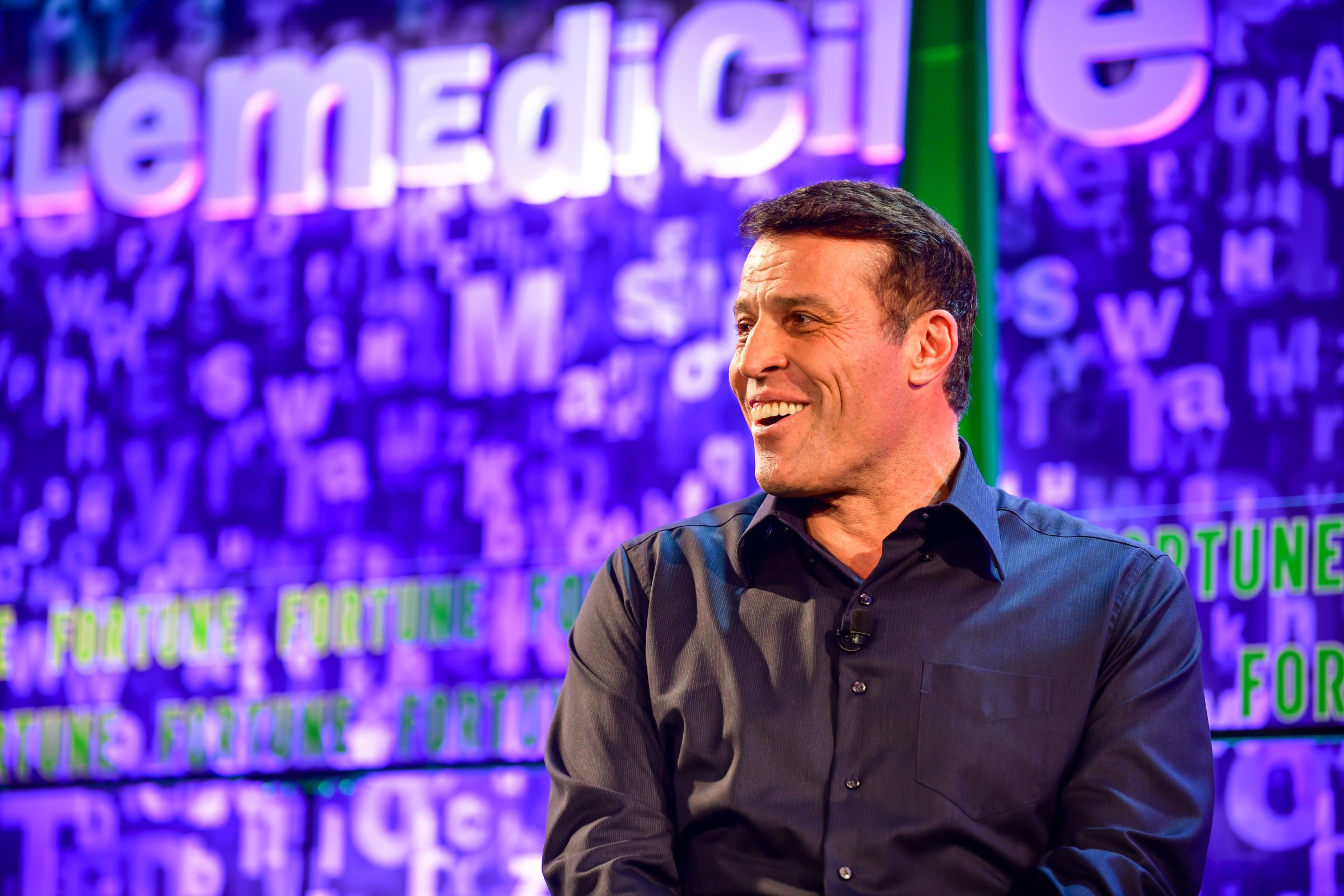
LAGUNA NIGUEL, Calif.—Tony Robbins has become a go-to life coach for CEOs, celebrities, and politicians. But his life hasn’t always been inspiring.
Robbins, the author of Unshakeable and Money: Master the Game, spoke at Fortune magazine’s Brainstorm Health conference here about how he’s overcome his own life challenges and how he uses those lessons to help leaders and everyday people improve their own lives.
“I went through a really tough childhood,” he said, adding that his mother abused prescription drugs and alcohol. “She’d bash my head against the wall and pour liquid soap down my throat until I threw up.” But Robbins sees the silver lining: “If my mom had been the woman I hoped she’d been,” he said, “I’d never be the man I’ve become.”
“Yes, you have to fail to be successful,” he added. “You have to fail—I don’t know if you have to suffer.”
Despite his difficult upbringing, Robbins has become a pro at helping other people achieve success. But that doesn’t mean his lifestyle doesn’t take a toll. His vocal chords are damaged from the 12 hours a day, on average, he spends speaking to crowds of people. During a recent lecture series, he burned enough calories for two marathons. He used to sleep only four hours a night, but now aims for six. But it’s all part of the process.
“I’ve never been a motivator, you need more than that,” Robbins told a rapt audience of health industry executives. “You need strategy. My approach is constantly stimulating and getting people to be raw.”
What’s important for Robbins, despite his setbacks and physical challenges, is having a mission and goal—and helping people find their own. “I’ve always had that drive,” he said. “Or I wouldn’t survive.” Even though he’s had his own financial success through his business strategy practice as well as stakes in various companies—his latest project is a book about health—Robbins says he’s stayed true to finding and cultivating that drive.
“What you get will never make you happy,” he said. “Who you become will make you very happy, or very sad.”
Robbins stressed that helping people means recognizing both their emotional and physical needs. To help patients with compliance, like taking medication on time, Robbins recommends paying attention to what people’s physical demeanor might say about how they’re feeling, and address it.
“The way we move influences how we feel,” he says.
Robbins said he has spent time consulting every living U.S. president. Except one: Robbins said Donald Trump hasn’t called him—yet.
“I bet you’re surprised to hear he hasn’t,” he told the crowd. “He’s always asking people for advice, isn’t he?”
More Must-Reads from TIME
- Cybersecurity Experts Are Sounding the Alarm on DOGE
- Meet the 2025 Women of the Year
- The Harsh Truth About Disability Inclusion
- Why Do More Young Adults Have Cancer?
- Colman Domingo Leads With Radical Love
- How to Get Better at Doing Things Alone
- Michelle Zauner Stares Down the Darkness
Contact us at letters@time.com